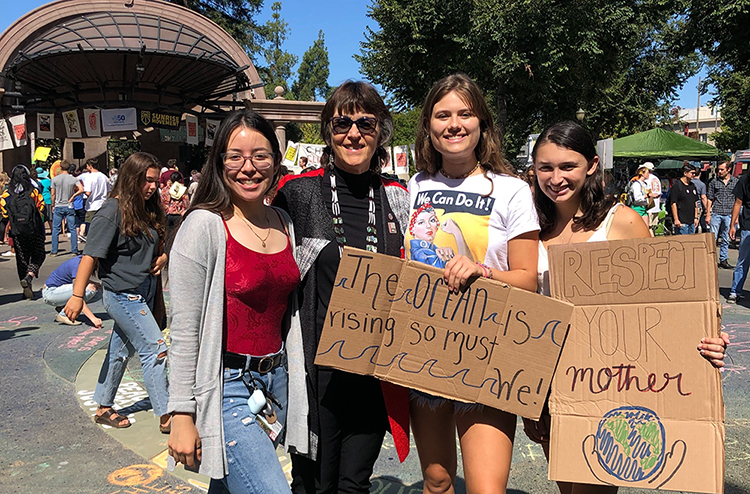Let’s Take a Stand for Our Planet

Have you noticed a decline in the number of birds flying around our area? I have. Over the last few years, it seems I see fewer birds on a day-to-day basis, and during migratory periods the passing flocks seem smaller too. In looking into it, I learned that of approximately 10,400 known species of birds around the world, 78% are declining and 22% are nearly threatened or threatened with extinction.
Subtle changes to the environment are occurring daily, and many of us just don’t notice. Additional research shows songbirds are literally shrinking in size. In the journal Ecology Letters, scientists reported on the measurements of more than 70,000 birds, representing 52 species collected from 1978 to 2016. The observed changes included shrinking body size and lengthening of wings.
The cause for these changes? Global warming is cited with confidence. Scientists elaborated that warm-blooded animals are generally larger in cold climates and smaller in warm climates because more compact creatures usually release heat more quickly. Longer wings enable birds to continue to make their growing migratory journeys.
As our world changes, birds are not the only living things struggling to thrive. According to the Center for Biological Diversity, “our planet is now in the midst of its sixth mass extinction of plants and animals.” Some argue that extinctions are natural phenomena that occur occasionally throughout time. While this is true, the extremely rapid rates of extinction we are witnessing today are alarming. Today, scientists confidently state that the current mass extinction crisis is caused primarily by human activity that pollutes ecosystems, reduces natural habitat, and creates global warming. Every day, we learn about the increasing effects of climate change on global communities and natural environments.
Scientists and activists have been calling for action to mitigate climate impact for decades. The Paris Agreement under the United Nations Framework Convention on Climate Change signed in 2016 lists 195 participating nations. Yet, our global actions to date have not been swift or comprehensive enough to slow or reduce global warming. And, frankly, we are running out of time.
“You have stolen my dreams and my childhood with your empty words. And yet I’m one of the lucky ones. People are suffering. People are dying. Entire ecosystems are collapsing. We are in the beginning of a mass extinction, and all you can talk about is money and fairy tales of eternal economic growth. How dare you!”
Swedish environmental activist Greta Thunberg on climate change in her address to the UN Climate Action Summit in September 2019
So, as we move into this holiday season and prepare resolutions for a new year, I ask what can we do both individually and professionally to address climate change now and every day forward?
How will you live more sustainably on campus and at home? How might we engage students more in and out of class and through research on climate change? How can we work with the City of Chico and area communities to address environmental, social, and economic impacts from climate change?
I believe a good start would be to take part in the Global Climate Strike scheduled from 9 a.m. to 4:30 p.m. December 6, at Trinity Commons, as organized by the Sunrise Movement Chico student organization. I’ll be there and hope you’ll consider joining me. Together, we can make a statement that we cannot continue business as usual. We must work to change our world today.
A strike is one way to make a statement, but it is merely a start. As a University, we are committed to taking actions, and we have already begun to increase efforts to address the impacts of climate change under our new Strategic Priority of Resilient and Sustainable Systems. We acknowledge that we have been doing good sustainability work on campus and in the community for quite a while, but it is time to ramp up our intentions and do better. The gravity of the effects of climate change is the clarion call for greater action.
We are committed to being climate neutral by 2030, and to increasing awareness that our individual and collective actions have impact regionally, nationally, and globally. We also pledge to be wise stewards of resources and to embrace sustainability as a way of living. We will integrate sustainability into our curriculum, research, and campus operations to better serve not only our students but the greater world.
As a people’s university, we will exercise greater leadership in local and global communities by sharing our research, knowledge, practice, and informed graduates to help create a more vibrant and sustainable future.
Together, let’s embrace that which we are doing well and reinvigorate our commitments and efforts to reduce our carbon footprint, stabilize our ecosystems, and improve our social well-being. I wish you the season’s best and look forward to joining you in making a difference in 2020.



